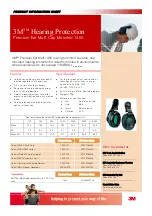
Civemasa Implementos Agrícolas
23
AACRP
Adjustments and operations
Important recommendations
Plow operations
• Before starting the plowing, carry out a general inspection on the equipment and
retighten all nuts and bolts, also checking the conditions of all pins and cotter pins to avoid
future damages. Repeat this operation after the first day of work.
• Lubricate all grease fittings appropriately.
• Have full knowledge of the soil before starting to work. Use the speed which is
suitable to the conditions of the ground or pathways to be covered. Provide the delineation
of obstacles or hazardous locations.
A good performance and job quality relies not only on a proper adjustment, but also on
the correct operation of tractor and equipment.
Regarding the tractor performance, the operator must have full knowledge of the
commands and resources that needs to be used.
The main factors that influences the job are:
• Equipment leveling.
• Used gear, which is relative to the working speed.
• Plowing depth.
• Tractor position related to the previous furrow.
The tractor gear must be determined by the soil conditions and equipment adjustments,
but it is recommended to save some power to not overload the tractor when any unpredictable
effort occurs.
We consider 5 to 8 km/h an ideal tractor speed for a plowing job. However, observe
the movement of the windrows, which vary according to the tractor speed, soil type and
equipment adjustments and can be thrown away too far or fall before being completely
inverted.
The plowing depth is usually controlled by the three-point hydraulic system, but it can
change with the variety of adjustments and the soil type that is being worked on. The correct
way to handle the hydraulic system must be checked on the tractor manual.
• Never allow any people or animal to get closer to the plow during the job.
• Be careful with the moving parts.
• Never operate the equipment without its safety devices.
• Always lift the equipment up when it is necessary to maneuver it.
















































